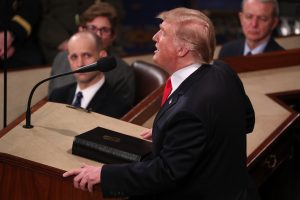
By April Joyner
NEW YORK (Reuters) – U.S. stocks edged lower on Wednesday as videogame makers gave disappointing revenue forecasts and investors awaited developments on U.S.-China trade relations.
The benchmark S&P 500 and the Nasdaq were weighed by declines in shares of Electronic Arts Inc, which tumbled 13.3 percent after the videogame publisher forecast full-year revenue below Wall Street estimates. The sharp drop pulled down shares of rival videogame publisher Activision Blizzard Inc, which fell 10.1 percent.
Shares of industry peer Take-Two Interactive Software Inc also dropped sharply, 13.8 percent, after the company’s similarly underwhelming forecast.
The slump in videogame stocks contributed to a 1.5 percent decline in the S&P 500 communication services sector, the largest drop among the S&P’s major sectors.
Despite the fall, Wall Street’s indexes remained near two-month highs. A 7.3 percent gain in the S&P 500 would put the index above its record closing September high.
“The market is feeling a little exhausted after we’ve had a nice run in January and early February,” said Nathan Thooft, global head of asset allocation at Manulife Asset Management in Boston.
Investors cited a void of catalysts for market gains.
“Trade talks are probably the thing that’s really intriguing to the market, but that’s in March,” said Kim Forrest, senior portfolio manager at Fort Pitt Capital Group in Pittsburgh, referring to the deadline for the United States and China to reach a trade agreement before additional tariffs go into effect.
The Dow Jones Industrial Average fell 21.22 points, or 0.08 percent, to 25,390.3, the S&P 500 lost 6.09 points, or 0.22 percent, to 2,731.61 and the Nasdaq Composite dropped 26.80 points, or 0.36 percent, to 7,375.28.
U.S. Treasury Secretary Steven Mnuchin said trade talks with China last week were “very productive” and confirmed that he and other officials will travel to Beijing for the next round of meetings.
Federal Reserve Chairman Jerome Powell will speak on Wednesday at 7:00 p.m. ET (0000 GMT) in Virginia.
Though the major indexes drooped, the Philadelphia SE Semiconductor Index advanced 2.6 percent. Shares of Apple supplier Skyworks Solutions Inc jumped 11.5 percent after the company announced $2 billion in stock buybacks, while shares of Microchip Technology rose 7.3 percent after the company suggested the chipmaker industry was close to recovery from its recent downturn.
Shares of Capri Holdings Ltd, formerly Michael Kors, climbed 11.3 percent after the fashion company posted a better-than-expected quarterly profit and raised its revenue forecast.
Anadarko Petroleum Corp shares slid 7.4 percent after the oil and gas producer’s fourth-quarter profit missed analyst estimates.
Declining issues outnumbered advancing ones on the NYSE by a 1.50-to-1 ratio; on the Nasdaq, a 1.09-to-1 ratio favored decliners.
The S&P 500 posted 17 new 52-week highs and two new lows; the Nasdaq Composite recorded 39 new highs and 17 new lows.
Volume on U.S. exchanges was 6.70 billion shares, compared to the 7.50 billion average over the last 20 trading days.
(Reporting by April Joyner; Additional reporting by Medha Singh and Amy Caren Daniel in Bengaluru; Editing by Shounak Dasgupta and Susan Thomas)










